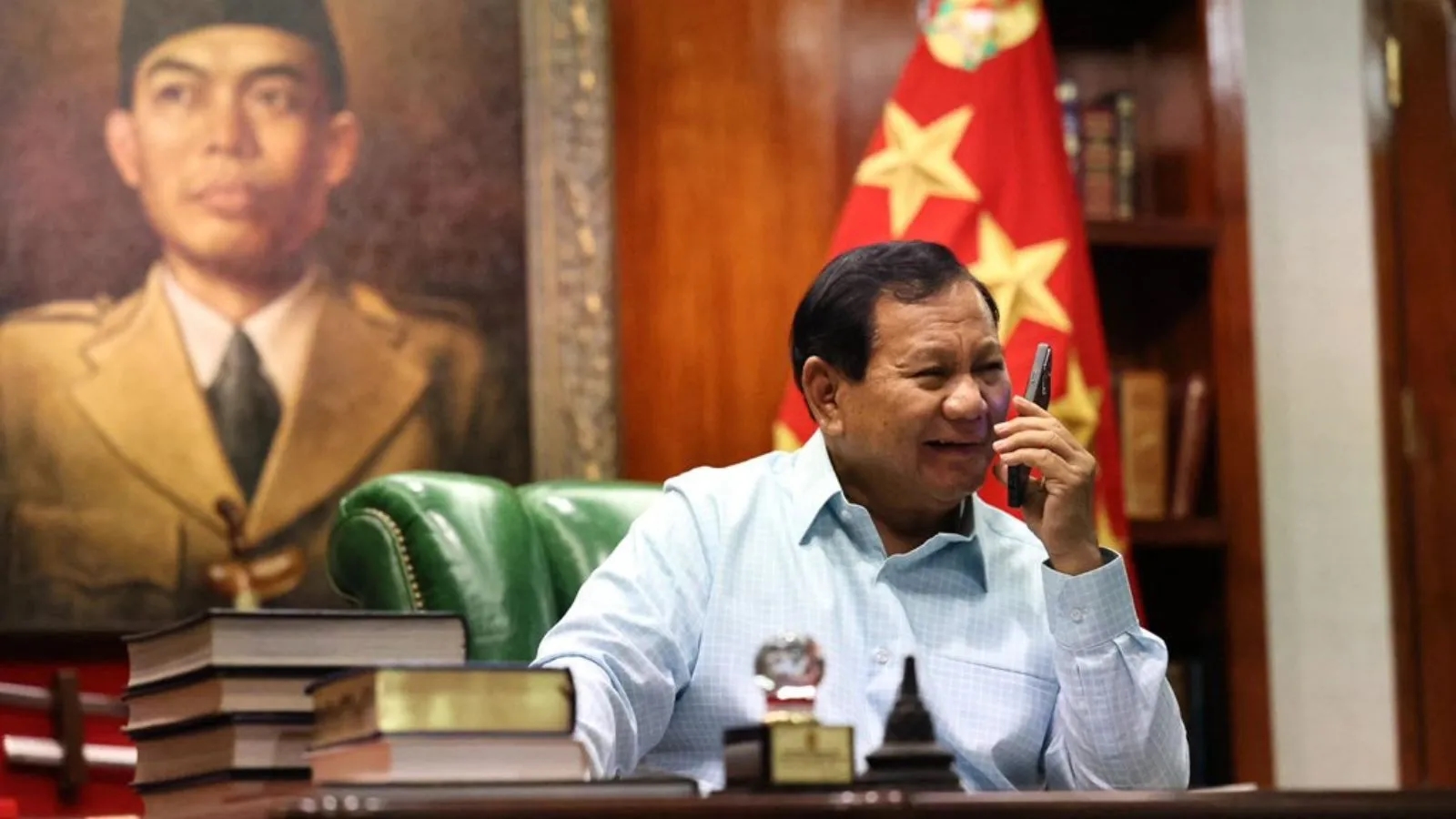Despite a shared history, India has neglected its eastern neighbours over the past six decades. On October 20, a vital maritime neighbour, Indonesia, saw a potentially climactic power transition. The avowedly nationalist Prabowo Subianto succeeded the affable Joko Widodo as president, with the latter’s son Gibran Rakabuming Raka providing continuity as vice president.
China is the first country President Prabowo is visiting, despite a Chinese coast guard ship having intruded into Indonesian waters on October 26. Prabowo’s relations with the US remain wary because of his human rights record. India must embrace President Prabowo before yet another key neighbour joins the Sinosphere despite Indonesian wariness about China’s overbearing business and geopolitical influence.
Prabowo belongs to a storied but controversial family. His father Sumitro Djojohadikusumo was the only person to have served as a senior minister in the cabinets of both Sukarno (1945-1967) and Suharto (1968-1998). Since Suharto undid almost every aspect of Sukarno’s regime during his reign, it required great political deftness to serve both. Prabowo’s grandfather Margono Djojohadikusumo founded Bank Negara Indonesia. It briefly served as the central bank of Sukarno’s nationalist regime, which the Dutch colonialists tried to overthrow between October 1945 and December 1949. Sumitro, with a fresh economics doctorate from the Netherlands, became Indonesia’s first representative to the UN in 1946.
When Biju Patnaik, the then-future CM of Odisha and an ace aviator, flew his Dakota onto an improvised airfield near Jakarta in July 1947, he rescued PM Sutan Sjahrir and Vice President Hatta from the clutches of the Dutch army, enabling the former to fly to New York. There, Sumitro and Sjahrir were able to bring Indonesia’s anti-colonial message out to the world.
In November 1945, ironically, the British Indian army had been instrumental in aiding Dutch attempts to regain Indonesia from Sukarno’s revolutionary regime. After Britain’s Brigadier A W S Mallaby was killed accidentally in Surabaya, the British used Maratha, Jat and Rajput troops in the horrific three-week battle for that city, killing at least 15,000 Indonesians, and rendering 2,00,000 homeless. November 10, 1945 is still commemorated as Hari Pahlawan (Day of Heroes) in Indonesia. Another year elapsed before Indian troops were withdrawn, levelling the field in the Dutch-Indonesian war.
Sukarno hosted the Bandung Conference in April 1955 which was to flower into the Non-Aligned Movement that India and Indonesia were instrumental in creating. But in the late-1950s, Sumitro not only fell out with Sukarno, he led a separatist rebellion in Sumatra backed by the CIA — one of at least six CIA-sponsored coup attempts against Sukarno in the late-1950s. Ironically, an attempt by Joseph Stalin to foment a communist coup against Sukarno in 1948 had led the US (led by President Harry S Truman) to back India’s support for Sukarno at the UN, thereby precipitating the final Dutch departure in December 1949. But the Dulles brothers (who ran the State Department and the CIA under Dwight D Eisenhower) believed that Sukarno was a menace to the US’s anti-communist goals.
Documents declassified in 2017 confirmed that the October 1965 coup via which pro-China Sukarno was replaced by the anti-communist Suharto was US-backed, marking one of America’s greatest successes of the Cold War in Asia. By the end of Suharto’s three-decade reign, General Prabowo Subianto (married to Suharto’s daughter Titiek) was expected to become military chief, having successively commanded Kopassus and Kostrad, the two strategic military units that Suharto had led in 1965.
With Suharto’s ouster in 1998, Prabowo fell out of favour, with the West implicating him for alleged atrocities during the East Timor independence struggle and the anti-Suharto riots of 1998. Prabowo’s brother-in-law, Soedradjad Djiwandono, the head of Bank Indonesia (the central bank), was indicted for excessive lending to failing banks during the 1997-98 financial crisis. Prabowo’s brother Hashim Djojohadikusumo’s Semen Cibinong group was among the earliest to collapse during that crisis.
India’s relations with Suharto’s Indonesia were strained, especially after Delhi tilted towards the USSR in 1971. Post-Suharto presidents like Abdurrahman Wahid and Megawati Sukarnoputri were keen on deepening ties with India, especially given Indonesia’s maritime disputes with China over the Natuna Sea. Relations became especially warm during outgoing President Jokowi’s decade in power, with India working with Indonesia to develop the strategic port of Sabang in Aceh, boosting its connectivity to the Nicobar Islands, and exploring the development of joint naval facilities.
Prabowo and Hashim went into exile after Suharto’s fall, rebuilding their business fortunes by 2008. Hashim’s ventures in forestry, plantations, minerals and coal have restored his place among the 50 richest Indonesians. Prabowo’s party, Gerindra, is the third-largest in parliament and helped him run thrice for president. After bitterly contesting the 2019 election outcome, he was offered an olive branch by Jokowi, who appointed him defence minister. Jokowi’s backing ensured a robust win for Prabowo this year.
Indonesia’s mineral-rich economy is among the world’s largest exporters of thermal coal, rubber, palm oil, nickel (vital for EV batteries) and tin, and a significant exporter of natural gas. This makes it naturally complementary to India’s expanding manufacturing sector. Opportunities for deeper cooperation exist for India’s service professionals to help Indonesia reduce its business costs.
Indonesia’s turbulent modern history shouldn’t obscure the deep civilisational links that bind our two nations. The Arjuna Wijaya statue (depicting Arjun and Krishna) built by Suharto at Jakarta’s Merdeka (Independence) Square symbolises the depth of those links. Let us embrace President Prabowo, and deepen the natural links with ASEAN’s largest nation before it too falls (like Myanmar) into China’s lap through our benign neglect.
Basu is an economist and author of Asian Reborn



